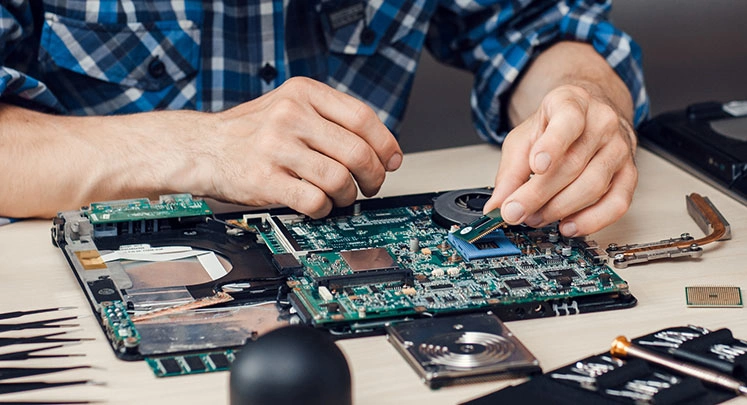Arcade games are not simply mindless forms of entertainment; they have the potential to shape players’ beliefs and attitudes towards social and political issues. As philosopher Marshall McLuhan famously stated, ‘the medium is the message.’
Arcade games, as a medium, have evolved significantly since their inception in the early 1970s, providing an immersive experience for players through advanced graphics, storytelling, and interactivity.
Arcade games have played a significant role in shaping popular culture, including political engagement. Through examining the representation of political issues in arcade games, it is clear that these games have the power to influence players’ perceptions of the world around them.
This article will explore the historical context of arcade games, the power of storytelling, the representation of social and political issues, and the potential for the Future of Arcade Games to be a tool for political change.
With a growing interest in the intersection of technology and politics, understanding the influence of arcade games on political engagement is more important than ever.
Key Takeaways
- Arcade games have the potential to shape players’ beliefs and attitudes towards social and political issues.
- By incorporating political themes and messages into arcade games, developers have the ability to shape the beliefs and attitudes of players, and potentially influence political engagement.
- Playing certain types of games can increase players’ sense of efficacy and agency, which can in turn lead to increased political engagement and participation, including voting.
- Further research is needed to fully understand the potential of arcade games as a tool for political change.
The Historical Context of Arcade Games
The historical context of arcade games encompasses the development and evolution of these electronic amusements from their early days in the 1970s to the present day, highlighting their social and cultural significance.
Arcade games have come a long way since their inception, with their evolution being marked by technological advancement, changes in gameplay, and a shift in focus from single-player to multiplayer games.
At their peak, arcade games were a ubiquitous part of youth culture, with young people flocking to arcades to socialize and compete with each other. This widespread popularity of arcade games had a significant impact on youth culture, shaping their attitudes towards competition, risk-taking, and social interaction.
Furthermore, arcade games were not just a source of entertainment but also served as an outlet for political expression, with games like Mortal Kombat and Street Fighter reflecting the political and social tensions of their time.
Overall, the evolution and impact of arcade games on youth culture have been immense, making them an important subject for study in the fields of history, sociology, and cultural studies.

The Power of Storytelling in Arcade Games
Exaggerating the impact of narrative in modern entertainment, the ability of storytelling to captivate audiences and shape their beliefs is a force to be reckoned with.
In arcade games, narrative immersion and emotional impact are essential in engaging players and encouraging political engagement. The use of storylines and characters can increase player investment and create a sense of personal connection to the game’s world.
By incorporating political themes and issues into the narrative, arcade games can educate players while also entertaining them. This can lead to increased awareness and involvement in political issues outside of the game.
For example, games like ‘Rebel Without a Cause’and ‘Election Year’tackle political themes like social inequality and the election process, respectively. These games use storytelling to draw players in, while also encouraging them to think critically about political issues.
Overall, the power of storytelling in arcade games should not be underestimated, as it has the potential to influence players’ beliefs and actions beyond the game itself.
Representation of Social and Political Issues in Arcade Games
Narrative immersion and emotional impact are crucial elements in engaging players and encouraging critical thinking about social and political issues in modern entertainment.
Arcade games have been increasingly incorporating representations of social and political issues to create a cultural impact on players. These games provide a platform for players to experience and reflect on real-world issues, which can lead to a deeper understanding and empathy towards different perspectives.
However, the representation of these issues in arcade games also raises ethical implications. The way in which these issues are portrayed can perpetuate stereotypes or oversimplify complex issues. It is important for game developers to carefully consider the messages they are conveying and ensure that they are not perpetuating harmful narratives.
Overall, arcade games have the potential to positively influence political engagement by providing a space for players to engage with real-world issues, but it is important to approach these representations with critical analysis and consideration for the cultural impact and ethical implications.
The Influence of Arcade Games on Players’ Beliefs and Attitudes
Impressions formed by players of immersive video games can be influenced by the game’s implicit messages, as conveyed through its framing, characters, and plot.
This is particularly true with regards to political engagement, as players can be exposed to certain political ideas and attitudes through their gaming experiences.
Player psychology plays a key role in this process, as individuals tend to be more receptive to messages that align with their pre-existing beliefs and attitudes.
Additionally, studies have shown that playing certain types of games can increase players’ sense of efficacy and agency, which can in turn lead to increased political engagement and participation, including voting.
However, it is important to note that the impact of arcade games on players’ political beliefs and attitudes is complex and multi-faceted, and more research is needed to fully understand the mechanisms at play.
The Potential for Arcade Games to be a Tool for Political Change
The potential for video games to serve as a means of political change has been increasingly explored in academic research. Gamifying politics is becoming a popular way to engage new and younger voters who may not be as interested in traditional political processes.
Arcade games are particularly effective at mobilizing youth, as they offer an interactive and engaging experience that can be easily shared among peers. By incorporating political themes and messages into arcade games, developers have the ability to shape the beliefs and attitudes of players, and potentially influence political engagement.
However, there are also concerns about the ethics of using video games to promote political agendas, as well as the potential for games to reinforce existing biases and stereotypes. Further research is needed to fully understand the potential of arcade games as a tool for political change.
Conclusion
Arcade games have a rich history of storytelling and representation of social and political issues. These games have the power to influence players’ beliefs and attitudes towards these issues. Through immersive gameplay and compelling narratives, arcade games can spark political engagement and serve as a tool for political change.
However, the potential of arcade games to influence political engagement is not yet fully realized. While some games have tackled important social and political issues, there is still a need for more diverse representation and exploration of complex issues. Additionally, there is a need for further research into the specific ways in which arcade games can impact players’ political beliefs and actions.
In essence, arcade games have the potential to be a powerful tool for political engagement and change. Like a paintbrush in the hands of an artist, arcade games can be used to create vivid and impactful representations of social and political issues. However, just as an artist must continue to refine their craft, game developers must also continue to push the boundaries of what is possible in order to fully harness the potential of arcade games as a tool for political change.
You may also like to read:
HOW SECURE DATA STORAGE EMPOWERS POLITICIANS






